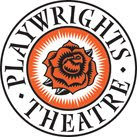Eson will be reading from her essay Alfresco on October 24, 2013 at 7:30pm as part of the NJ Literary Artists Fellowship Showcase.
The reading will take place at
in the Chase Room
of the Madison Public Library
39 Keep Street
Madison, NJ 07940
Click here for directions
There is a suggested donation of $10. All tickets will be available at the door on the evening of the readings. No advanced ticket sales.
1. Where did you get the idea for Alfresco? More than ten years ago I lost touch with my cousin. She’d moved around a few times, and I had my share of upheavals. Life got in the way, and we drifted apart. But then my mother bumped into her a few years ago, and this brought the warm memories back. In many ways, my relationship with Pree (not her real name, by the way) was one of the best parts of my childhood. And yet too many people thought I was close to her out of some goodness inside of me. But it wasn’t a sense of charity that drew me to her; it was complete admiration and love for the remarkable person she was.
As a young, inexperienced child, I honestly didn’t know why Pree was not more appreciated for the great, kind, and capable person that she was. Now, of course, I know. It’s still true that human beings are socialized to define beauty in such narrow ways, and because of this limited definition, everyone misses out. But I was too shy and young at the time to articulate my affection and respect for her. So Alfrescowas a tribute of sorts, a belated acknowledgement.
2. In the description of Alfresco, you mentioned that the narrator’s cousin seems to have it all: a posh New York City apartment, a famous sister, and lots of spending money, but she lacks the ability to acknowledge her own beauty. What is it about beauty that is central to this character’s development?
The narrator learns by watching Pree that there is an invisible type of beauty that society doesn’t typically see or value. And so the narrator must bear witness to the way Pree is isolated and ignored—a hard lesson to learn about the backwards way the world works sometimes.
So we must decide for ourselves: what type of beauty will we value and promote?
3. You support Untethered Reads, a community book club program where free books are placed in random public locations to promote reading. Where is the most random place you’ve left a book?
Good question! Untethered Reads is still rather new, so we’ve stuck with more common public areas like food courts, train stations, and coffee shops. However, one of the best experiences I’ve had was when I decided to leave a book in a shopping cart at the grocery store. An hour later, the skies turned cloudy, and I wondered if I’d made a horrible mistake leaving the book out in the open where it could get soaked. But when I checked the Facebook and Tumblr accounts, a reader ecstatically posted that she’d just picked up the book. She was thrilled because she was having a terrible day, and this perked her right up. She became a great participant in the program by reading and passing along the book
4. We asked you to recommended books and one of the books you listed was Woman Warrior by Maxine Hong Kingston. Why do you like this book?
I grew up during a time when British Literature written by male authors monopolized English classes. So when a teacher recommended this book, it significantly changed me as a reader. Each page seemed to crackle as I turned it. I’d never before felt so alive as a reader.
I had no idea that an Asian woman could write about her culture in a way that was so bold and free. She broke through the demure stereotype and told a wonderfully layered and complex story.
About five years ago, I had the privilege of meeting Maxine Hong Kingston at a book signing. She was promoting her latest book, which I also bought, but I really wanted her to sign my 1989 edition of Woman Warrior. And while we didn’t have a long conversation, I gave her the gist of how Woman Warrior influenced me all those years ago. She was incredibly gracious, and later when I opened my book I noticed that she’d signed it: “To Eson—Sister!”Maybe she signs all her books that way because she has such a laid back, welcoming demeanor. But to me, it encapsulated how the book really made me feel all those years ago—like somewhere out there I had a literary sister who reframed my literary world in a way that included me in it.
5. If you could live the life of any character from any book, who would you choose and why? Wow. This is a totally unfair question to ask a book lover! Let’s see. So many of the books I enjoy are incredibly sad with a lot of loss involved. While I adore those books, I’m not sure I’d want to live the life of any of those characters, that’s for sure.
I’d probably have to dig back to Jo from Little Women. I can’t really see myself living a life without writing, so she’s a good choice. She resonates with me for her tomboy tendencies, deeply felt passions, and fierce family loyalty. I don’t know how I’d manage wearing dresses all the time, and I’d probably end up killing Amy at some point, but outside of that, I think it would be a pretty solid life.
You can also find additional information on our website about the Literary Artist Fellowship program.






